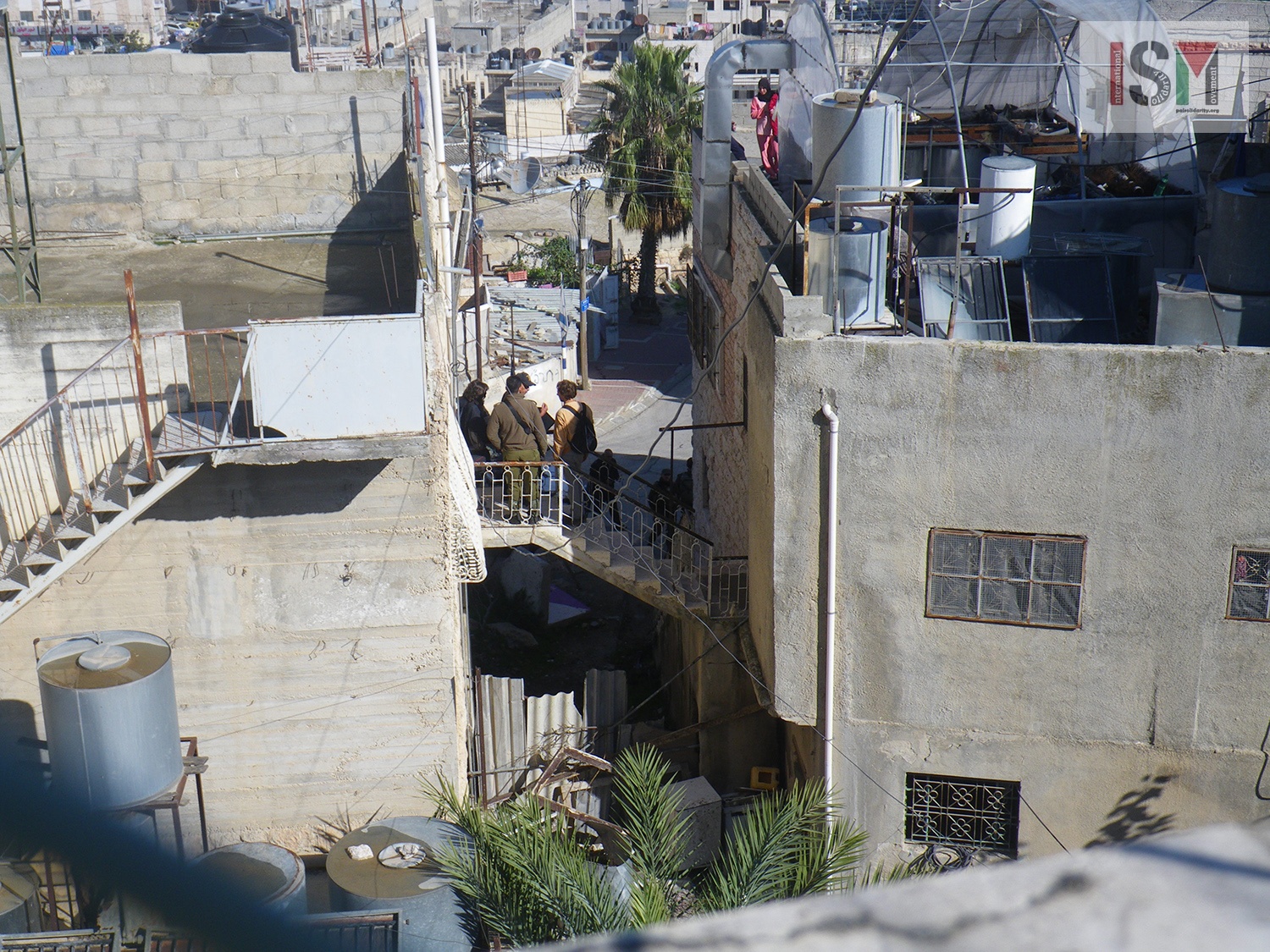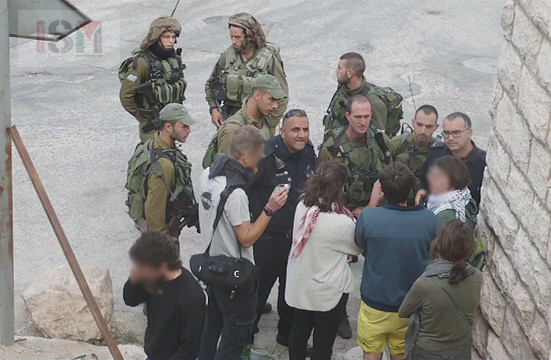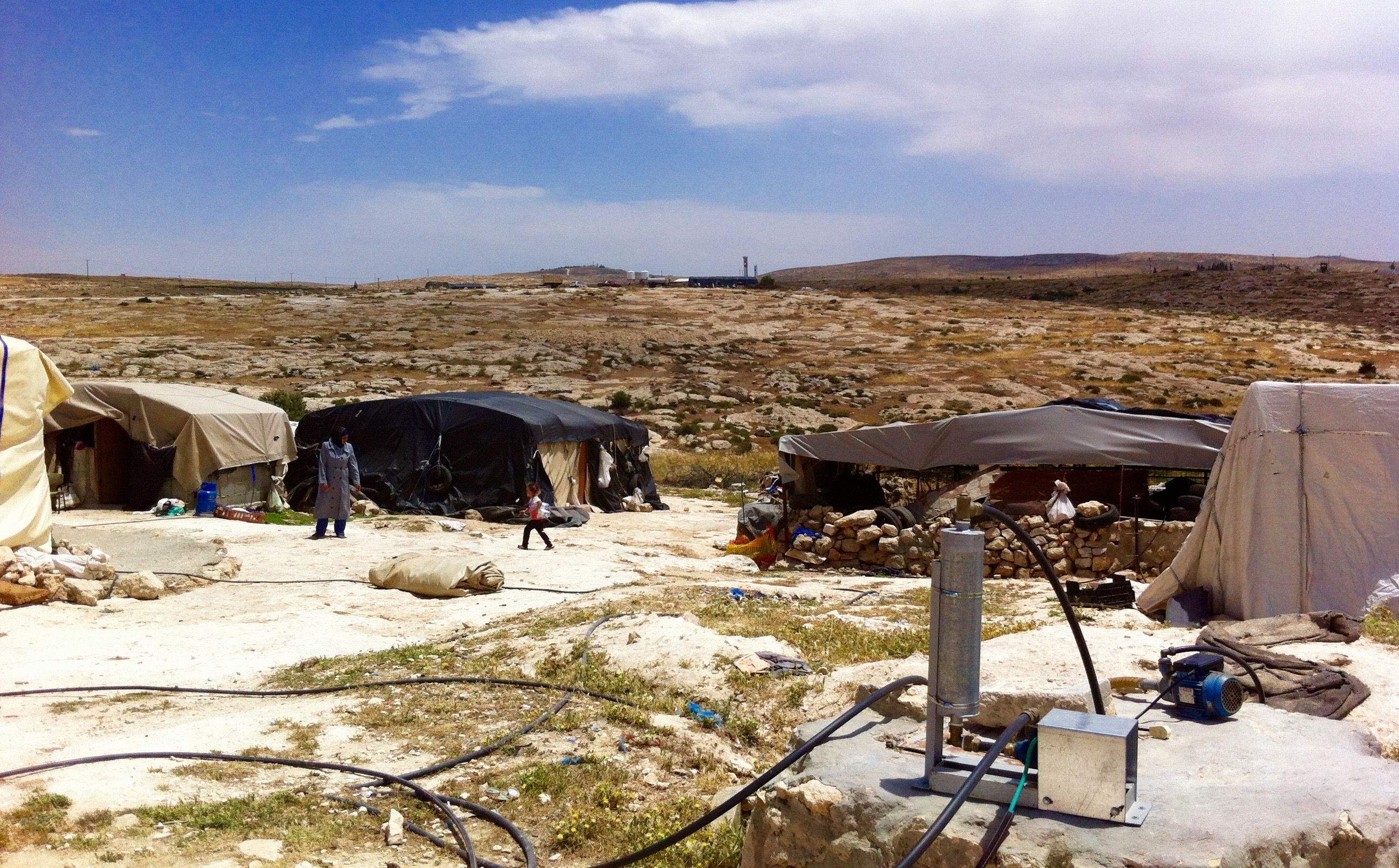Tag: Eviction
-
Human rights activists evicted from Tel Rumeida apartment again
12th November 2015 | International Solidarity Movement, al-Khalil Team | Hebron, occupied Palestine Yesterday, international activists regained access to their Tel Rumeida apartment after being denied entry for a week. This morning at 8.45am another activist tried to enter the apartment but was prevented by soldiers, even after showing them the rental contract granting her…
-
International human rights defenders arrested and evicted while “Hebron is becoming ghettoized”
4th November 2015 | International Solidarity Movement, al-Khalil team | Hebron, occupied Palestine Two international human rights defenders were arrested in Hebron (al-Khalil) yesterday morning, November 3rd, while six others were ordered to leave an apartment in the H2 neighbourhood of Tel Rumeida by threat of arrest. The German and American nationals were arrested at…
-
Action alert: Susiya village at high risk of demolition
11th May 2015 | Operation Dove | At Tuwani, South Hebron Hills, Occupied Palestine POPULAR STRUGGLE COORDINATION COMMITTEE AND POPULAR STRUGGLE COMMITTEE OF SOUTH HEBRON HILLS CALLS FOR INTERNATIONAL PRESENCE IN SUSIYA VILLAGE Where: Susiya Village, South Hebron Hills When: From now, permanently What: Popular Struggle Coordination Committee and Popular Struggle committee of South Hebron Hills…



